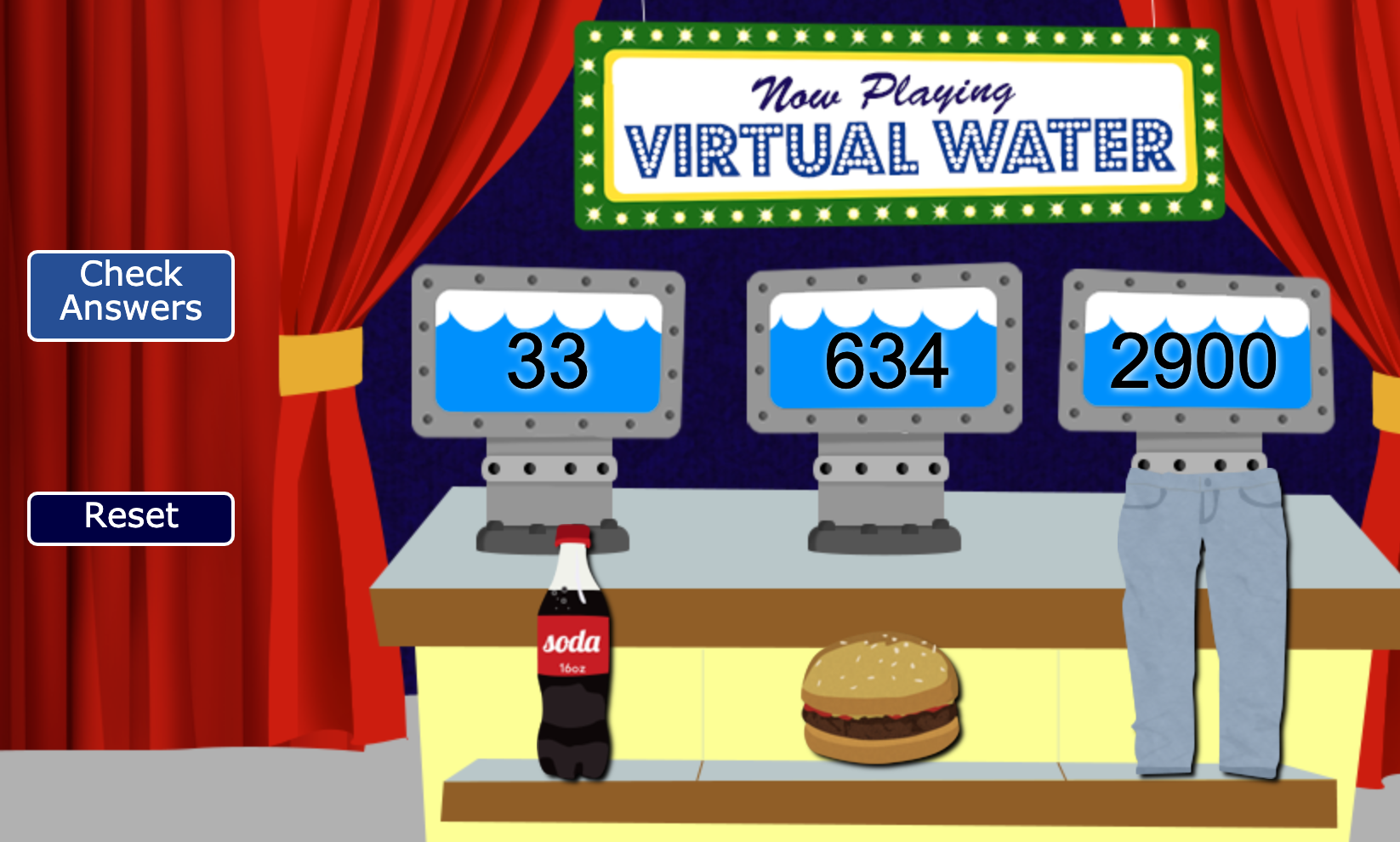The Planet Blue Ambassadors program at the University of Michigan aims to empower faculty, staff, and students to become advocates for sustainability on campus. The program covers several key areas of sustainability, including waste reduction, energy and water conservation, sustainable diet, and more. The University hired us to help them build an online training program to allow people to self-educate and track their sustainability goals and progress, form teams, and earn points and badges.
The training was broken into sections, corresponding to five main areas of sustainability. Each section concluded with an interactive, educational game, reinforcing the topics covered.
Building the Games
The games were designed to be fully responsive and mobile-friendly, and feature a recurring character, a wolverine mascot. To develop each game, we worked either with local professional cartoonists or staff illustrators at the University to create any graphics or image content. U-M staff gave us parameters and data for how the game should operate, such as how the game could be won, and we took it from there. We met regularly with U-M staff for feedback and testing.

The Five Games
- Community: this game simulates a variation of the Tragedy of the Commons. As one of many fisherfolk trying to run a profitable business despite a finite fish population, you must determine the responsible amount of fish to haul in each year without ruining the industry for everyone.
- Energy: the goal of this game is to make the most energy efficient home possible by dragging five common household items to a virtual apartment. For instance, using a bike is one of the best ways to save energy. Simply using a power strip can save up to 470 pounds of CO2 annually.
- Food: in this game, you build a meal, choosing from a variety of food items. The goal is to create the meal with the lowest climate impact. Beef has a severe climate impact, but by choosing local vegetables or more sustainable meats, such as chicken, you can win the game.
- Waste: choose the correct way to dispose of your waste in this game. Given a list of common household items ranging from pizza boxes to styrofoam cups, determine the destiny of your waste, learn your recycling options, and discover materials to avoid, such as styrofoam.
- Water: in this “Price is Right”-like virtual game show, with a Michigan wolverine as host, choose which household item requires greater water to produce, e.g. producing one pound of chocolate requires much more water than 500 sheets of paper.

These games — a small component of the system we created — have helped educate many thousands of faculty, staff, and students at the University of Michigan about how to live and work in sustainable ways. Countless “Planet Blue Ambassadors” have resulted.
- JavaScript (CreateJS)
- Drupal
- Graphic Design and Character Creation